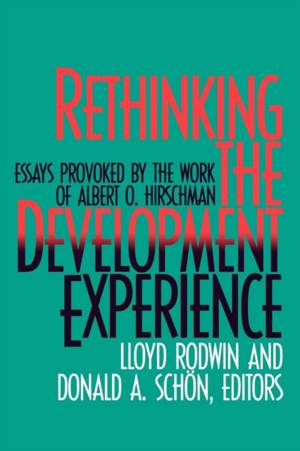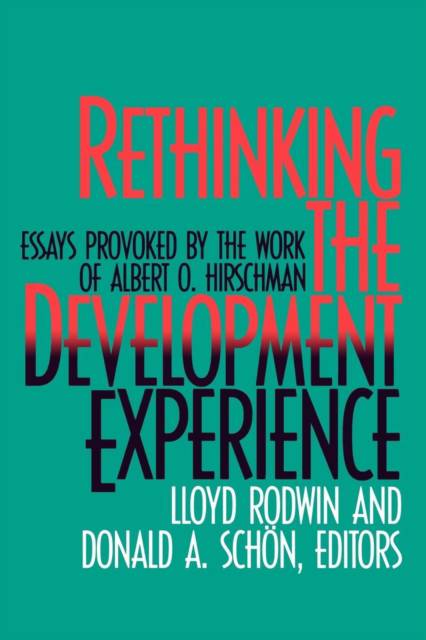
- Retrait gratuit dans votre magasin Club
- 7.000.000 titres dans notre catalogue
- Payer en toute sécurité
- Toujours un magasin près de chez vous
- Retrait gratuit dans votre magasin Club
- 7.000.0000 titres dans notre catalogue
- Payer en toute sécurité
- Toujours un magasin près de chez vous
Rethinking the Development Experience
Essays Provoked by the Work of Albert O. Hirschman
Donald a Schon, Lloyd RodwinDescription
This book, written by a group of distinguished scholars and practitioners, critically reappraises ideas about learning and development advanced by Albert O. Hirschman in the 1950s and 1960s. The essays--prepared for an MIT faculty seminar--show how these innovative ideas bear on the theory, policy, and practice of development in the 1990s. Hirschman, one of the great pioneers in the field of economic development, is now professor emeritus at Princeton.
Paul Krugman, Lance Taylor, and Donald Schon address the different approaches and assumptions of economic theorists in relation to modelling, learning, and development policy. Emma Rothschild, Lisa Peattie, and Bishwapryiya Sanyal examine some of the changing attitudes toward economic progress. Elliot Marseille, Judith Tendler, Sara Friedheim, Robert Picciotto, and Charles Sabel draw lessons from efforts to innovate or modify institutions, policies, programs, and projects. Lloyd Rodwin examines the underlying themes that emerge, particularly those that touch on the ideas of development as a process of social learning and on ways of strengthening theory, policy, and practice in economics when it is seen as both discipline and profession.
In a postscript, Albert O. Hirschman reflects on the evolution of his ideas, his cognitive style, and his propensity for self-subversion. Two appendixes detail the candid seminar discussions and Hirschman's musings in response to particular chapters and questions raised by the participants.
"Spécifications
Parties prenantes
- Auteur(s) :
- Editeur:
Contenu
- Nombre de pages :
- 382
- Langue:
- Anglais
Caractéristiques
- EAN:
- 9780815775515
- Date de parution :
- 01-11-94
- Format:
- Livre broché
- Format numérique:
- Trade paperback (VS)
- Dimensions :
- 158 mm x 226 mm
- Poids :
- 526 g

Les avis
Nous publions uniquement les avis qui respectent les conditions requises. Consultez nos conditions pour les avis.






